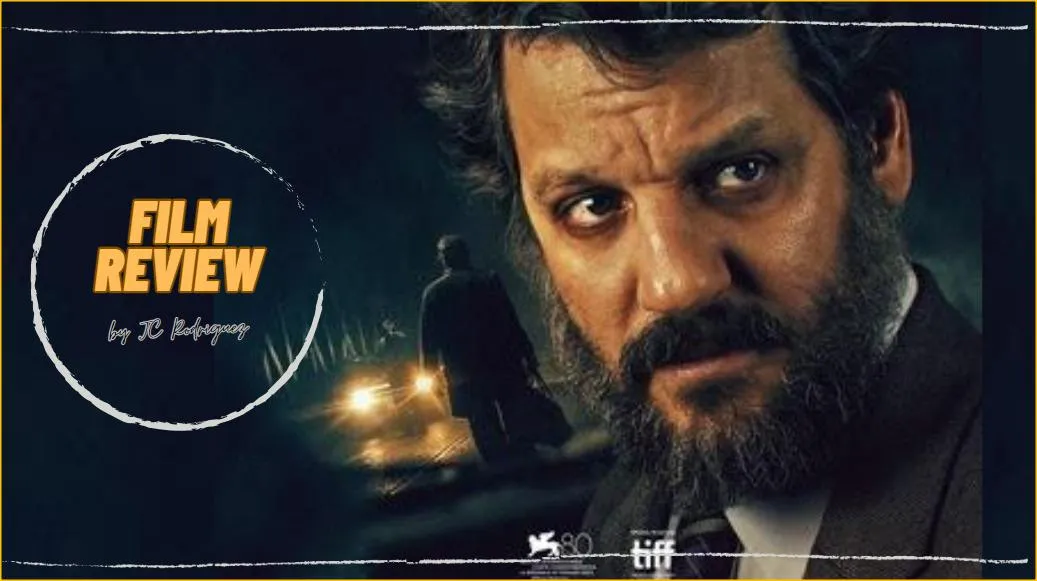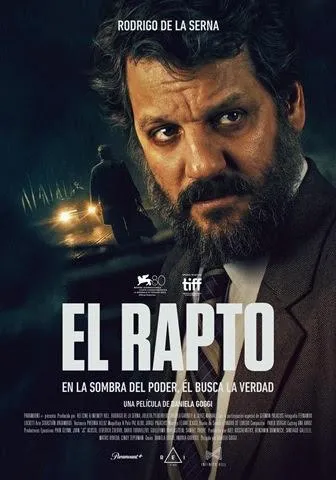A family affair
Un asunto de familia


When tyrannical regimes fall, the people who acted as the armed wing of a dictatorship are left without their main source of income. But the world does not end for them, there will always be a contact, a friend, a politician, who will protect them, need their services or keep them happy because they know a lot of things. In case they do not fit in the spheres of the new power, they can easily commit crimes on their own.
Such was the case of the members of law enforcement and armed groups who acted under the orders of the Argentine dictatorship in the seventies and who after 1983 committed crimes with total impunity, even working for the nascent democratic government. I was amused that these criminals were called at the time "Mano de Obra de Desocupada" (unemployed labor force). Things that sound like something out of a science fiction story.
Historically it is an evil that goes back centuries. Those who do the dirty work for a regime, will always manage to get comfortable in the next one. Not even the arrival of a democracy, a change, is a guarantee that things will improve. No system of government is perfect, because power intoxicates and personal interests will always be more important than the interests of the collective. Our entire history has revolved around the same mistakes over and over again.
Cuando caen los regímenes tiránicos, las personas que actuaban como brazo armado de una dictadura se quedan sin su principal fuente de ingresos. Pero el mundo no se acaba para ellos, siempre habrá un contacto, un amigo, un político, que les protegerá, necesitará sus servicios o les mantendrá contentos porque saben muchas cosas. En caso de que no se acomoden en las esferas del nuevo poder, pueden fácilmente delinquir por su cuenta.
Tal fue el caso de los miembros de las fuerzas del orden y de los grupos armados que actuaron bajo las órdenes de la dictadura argentina en los años setenta y que después de 1983 cometieron delitos con total impunidad, incluso trabajando para el naciente gobierno democrático. Me hizo gracia que a estos criminales se les llamara en su momento "Mano de Obra de desocupada". Cosas que parecen salidas de un cuento de ciencia ficción.
Históricamente es un mal que viene de siglos atrás. Los que hacen el trabajo sucio para un régimen, siempre conseguirán acomodarse en el siguiente. Ni siquiera la llegada de una democracia, un cambio, es garantía de que las cosas vayan a mejorar. Ningún sistema de gobierno es perfecto, porque el poder intoxica y los intereses personales siempre serán más importantes que los intereses de la colectividad. Toda nuestra historia ha girado en torno a los mismos errores una y otra vez.



I don't know who would be in charge of choosing the title of the film. I find it unappealing and there are many movies with the same title. I almost passed it by, I was encouraged to see it because of the leading performance and because I was looking for the real case that serves as inspiration for the story.
The production is an adaptation of a book written by Argentine journalist Martin Sivak, entitled El Salto de Papa. It is a free adaptation, so names, places and facts are changed, in order not to make such a direct reference, perhaps due to legal issues. Some members of the family made statements against it, both when the book was published and when the production of the film was announced.
It is a family matter, as I expressed at the beginning of this post. Martin Havik is the nephew of the actual kidnapping victim and the son of the protagonist of his book. Although he was quite young when the tragic events occurred, he has wanted to give his version, based on his memories and a thorough research process, to honor the memory of his father. According to the information found on the internet, this case was much commented in the Argentine society of the eighties. You can search in Google and you will find hundreds of reports, if you want to know all the details of the real event.
No sé quién se encargaría de elegir el título de la película. Me parece poco atractivo y hay muchas películas con el mismo título. Casi la paso de largo, me animé a verla por la actuación protagónica y porque estaba buscando el caso real que sirve de inspiración para la historia.
La producción es una adaptación de un libro escrito por el periodista argentino Martin Sivak, titulado El Salto de Papa. Se trata de una adaptación libre, por lo que se cambian nombres, lugares y hechos, para no hacer una referencia tan directa, quizá atendiendo a cuestiones legales. Algunos miembros de la familia hicieron declaraciones en contra, tanto cuando se publicó el libro como cuando se anunció la producción de la película.
Es una cuestión familiar, como expresé al principio de este post. Martin Havik es sobrino de la víctima real del secuestro e hijo del protagonista de su libro. Aunque era bastante joven cuando ocurrieron los trágicos hechos, ha querido dar su versión, basada en sus recuerdos y en un minucioso proceso de investigación, para honrar la memoria de su padre. Según la información encontrada en internet, este caso fue muy comentado en la sociedad argentina de los años ochenta. Puedes buscar en Google y encontrarás cientos de reportajes, si quieres conocer todos los detalles del hecho real.


Rodrigo de la Serna leads the solid cast. I admire many Argentine actors, this is one of them. He always stands out and does an excellent job. Watching him is a pleasure, we forget he is the actor and we completely see the character. A first class performance, he is the whole movie. By the way, I wonder if the actor smokes so much in real life, because his character appears in almost every scene smoking compulsively. A reflection of an era. Don't let the Crystal Barbie generation of fanatics come and say it's an apology to vice. In those days people even smoked on airplanes.
I really liked filmmaker Daniela Googi's work as a director. I haven't seen any of her filmography, but now I will look for last year's miniseries where she also tackled a real cri-men. In this film she handles tension to perfection. Turning the family drama and especially the character of Julio Levy, to the edge of a tragedy that affected not only a family in real life, but hundreds of people, as this case was not the only one.
More than the story of a kidnapping, it is the chronicle of a tragedy. Of how a vile crime affects an entire family, of what happens the day after, of the society of accomplices, of the impunity that remains to this day after so many victims. The economic, moral and emotional destruction that originates when the State, whose mission is to protect citizens, looks after its own interests and protects the guilty.
It is available on Paramount +
Thank you if you have read this entire pod. Leave me your comments
Rodrigo de la Serna encabeza el sólido reparto. Admiro a muchos actores argentinos, este es uno de ellos. Siempre se destaca y hace un excelente trabajo. Verlo es un placer, nos olvidamos que es el actor y vemos completamente al personaje. Una interpretación de primera, él es toda la película. Por cierto, me pregunto si el actor fuma tanto en la vida real, porque su personaje aparece en casi todas las escenas fumando compulsivamente. El reflejo de una época. Que no venga la generación de fanáticos de la Barbie cristalina a decir que es una apología al vicio. En aquella época se fumaba hasta en los aviones.
El trabajo de la cineasta Daniela Googi como directora me gustó mucho. No he visto nada de su filmografía, pero ahora buscaré la miniserie del año pasado donde también abordó un verdadero cri-men. En esta película maneja la tensión a la perfección. Volcando el drama familiar y sobre todo el personaje de Julio Levy, al filo de una tragedia que afectó no sólo a una familia en la vida real, sino a cientos de personas, ya que este caso no fue el único.
Más que la historia de un secuestro, es la crónica de una tragedia. De cómo un crimen vil afecta a toda una familia, de lo que ocurre el día después, de la sociedad de cómplices, de la impunidad que hasta hoy permanece después de tantas víctimas. La destrucción económica, moral y emocional que se origina cuando el Estado, cuya misión es proteger a los ciudadanos, vela por sus intereses y protege a los culpables.
Está disponible en Paramount +
Gracias si has leído esta vaina entera. Déjame tus comentarios

Gifs and separators made by me in photoshop. Translation with Deepl


Join the community

